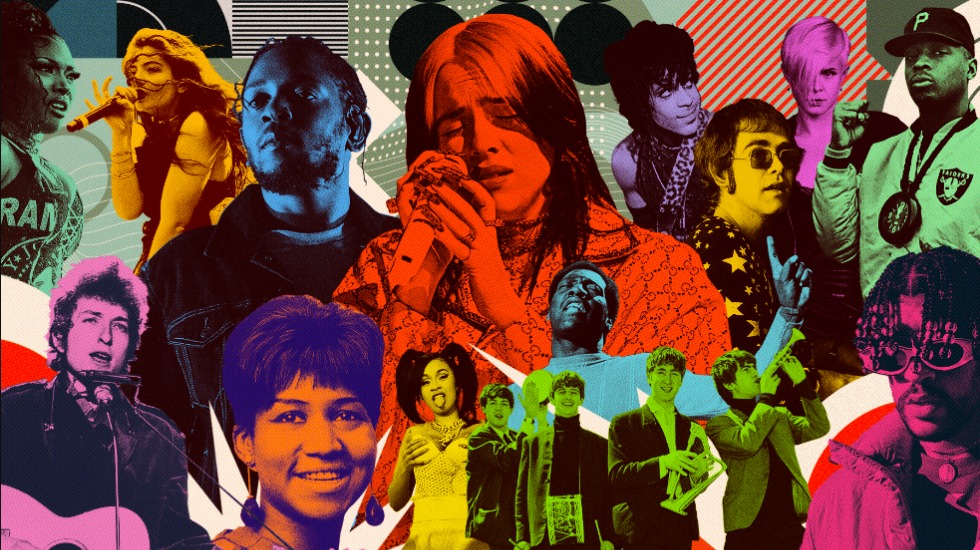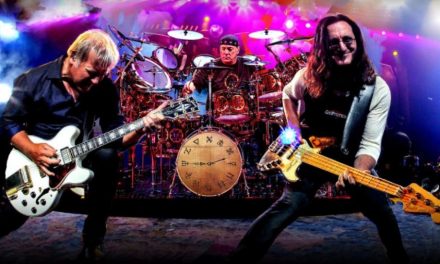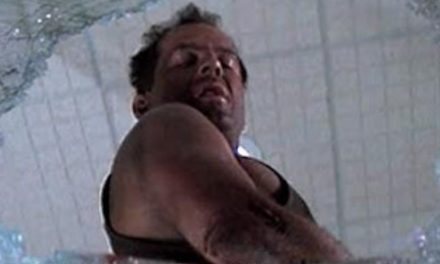Rolling Stone magazine created plenty of debate recently when it released its 500 best songs of all-time list. Image: ROLLING STONE
The SMS popped up on my phone late on a lazy lockdown Saturday afternoon a few weeks back.
“Have you seen the Rolling Stone greatest songs of all-time list?”
Now, your mates who know you well enough also know what trips your trigger.
I knew that the message wasn’t an invitation to rush to my iPad and scroll through the Rolling Stone list in a festival of self-congratulation and confirmation bias.
There was next to no chance that I would agree with the consecration of whatever list of radio-friendly unit shifters that Rolling Stone was passing off as its latest musical canon.
If you want to do that, go right ahead, bore yourself stupid.
But me? I’m an insufferable curmudgeon, and any list that offers John Lennon’s “Imagine” a spot high on the starting grid is about as useful to me as a box set of Phil Collins albums.
The Rolling Stone list is little more than a Spotify playlist put together by some bored boomer on their lunch break in between clicking around on their laptop checking out what colour chinos they want to buy from Country Road on the weekend.
And while we’re at it, what self-respecting Australian music fan isn’t tossing this list straight in the crapper? The total absence of any authentic local imprint makes the list another act of cultural colonisation we can all do without.
It’s a perfect illustration of how the Anglo-American cultural hegemony that was established by the post-war popular culture explosion still has its hooks in us.
Don’t get me wrong, though. You know I’m partial to a listicle. C’mon, I can be as facile and self-righteous as the best of them!
Rather than a list of Captain Obvious’s greatest hits, why not a list of songs that may not have been stadium sing-alongs or party-floor fillers, but without which, none of these things would ever exist?
Those songs that may have been lost in the supermarket, but launched a thousand bands and changed the world forever?
Here’s a list of a few of the most influential songs in my life as a music fan. And of course, feel free to try and hit a three-pointer into the bin with it if it ain’t your thing, and write a list of your own (post it in the comments section below!).
Billie Holiday – Strange Fruit (1959)
“Southern trees bearing a very strange fruit, Blood on the leaves and blood on the root…”
There are very few moments in life where a song feels like a lightning strike, leaving you utterly decimated. Billie Holiday’s haunting rendition of “Strange Fruit” does that to me any time I hear it.
Written in 1939 by the son of Russian Jewish immigrants, Abel Meeropol, “Strange Fruit” captures the utter horror of the Jim Crow south. The terror, the hatred, and the lynch mobs are all juxtaposed against the whiff of Magnolias and the ideal of nature’s enduring beauty.
PLEASE HELP US CONTINUE TO THRIVE BY BECOMING AN OFFICIAL FOOTYOLOGY PATRON. JUST CLICK THIS LINK.
Nearly 100 years on, in the age of George Floyd, Freddie Gray, Breonna Taylor and the BLM movement, “Strange Fruit” is as tragically real now as it was when it was written.
Link Wray & His Ray Men – Rumble (1958)
In 1958 rock ‘n’ roll was still in nappies. So when Link Wray unleashed this fuzz box instrumental it must have sounded like an army of leather-jacketed teenage delinquents trashing everything in sight.
“Rumble” uses guitar distortion and tremolo in a way never heard before. You can draw a link from this to every guitar hero that ever strapped on a six-string. None of them ever sounded quite so cool and down right “don’t f–k with me” as Link Wray does on Rumble.
The Velvet Underground – Heroin (1967)
Rock mythology has it that the “Velvet Underground & Nico” only sold a couple of thousand copies when it was first released in March 1967, but everyone of them went on to form a band.
The album’s centrepiece is this clear-eyed, unflinching confessional from Lou Reed about the ecstasy and agony of heroin. “Heroin” is a seven-minute deep dive into the word of junk that is so thrilling and confronting, so unapologetically honest, it still shocks today.
No Fixed Address – We Have Survived (1982)
As a 14-year-old in 1982 just discovering the joys of the multiracial two-tone ska movement, that gave us bands like The Specials, Madness and The Beat, it hadn’t dawned on me that Australia also had another musical narrative.
No Fixed Address and “We Have Survived” changed all that for me. It’s natty reggae rhythm may’ve been familiar, but this was the first time I had heard an Aboriginal voice, telling a story I had never heard and needed too.
It’s vibrant, defiant and funky and powerful and has not diminished in its potency one iota.
Grandmaster Flash – the Adventures of Grandmaster Flash on the Wheels of Steel (1981)
Forget everything you ever know about music.
That’s what occurred to me when I first heard this busting out of my radio in 1981.
This live DJ mix recording of the legendary Grandmaster Flash scratching and mixing various records, across three turntables was the musical equivalent of splitting the atom.
It took the product – the vinyl record – and turned it inside out to phoenix into an entirely different beast. It comes at you from all angles, with samples from everything from Chic’s “Good Times”, Queen’s “Another one Bites the Dust” and Blondie’s “Rapture”.
Form and content become each other and a new music is born. Somewhere in Broadmeadows, in the far corner of suburban Australia, a young man would never be the same.













Cuma Kamelian…kamelia!
Music…
Nothing greater to harden the depth’s of reality.
As the great Kris Kristofferson wrote…
As I woke up Sunday morning with no way to hold my head that didn’t hurt’ & the beer I had for breakfast wasn’t bad, so I had one more for dessert…..etc…
&
Then I crossed the empty street & caught the Sunday smell of someone fryin’ chicken!
Nothing like lyrics to relive the past!
Great Article Frank🙌
“And while we’re at it, what self-respecting Australian music fan isn’t tossing this list straight in the crapper? The total absence of any authentic local imprint makes the list another act of cultural colonisation we can all do without.”
Too bloody right. I looked recently at a similar list published by Pitchfork and was suitably dismayed at the lack of Australian content.
In recognition of this perennial oversight by the Anglo-American media, here are just five great Australian songs that comfortably stand tall in international company:
Since I Left You—Avalanches
The Opposite Of Us—Big Scary
God—Lobby Loyde
Night Of The Wolverine—Dave Graney & The Coral Snakes
My Pal—GOD
Rolling Stone has been insufferable nonsense for at least 40 years.
For Christmas In 2010 I was given the best gift I have ever received- a book called 1001 songs you must hear before you die. The reason why it was the best gift was because I spent hundreds of hours in 2011 seeking out those songs, the artists and genres that they stemmed from or created. Sure it wasn’t an even spread of worldwide music, but it broadened my horizons. We should forgive RollingStone and it’s arguable 500 list by treating it the same way. Today’s music fan has limited contemporary breadth/bandwidth and could do well to explore songs that are not familiar to them. As for your list Francis, you will find four of your five listed in the book I treasured. I consider Grandmaster Flash to be the most compelling influence on any great music to follow it’s release. We can be thankful, for many music documentaries that air on NITV which expand on the influence of No Fixed Address in Australian indigenous music; and includes broader references such as the great Rumble-The Indians that rocked the world.
Hi Francis love the article. I’ll go quickly so I don’t get distracted 🙂
1. The Main- Grant Hart
2. Sweet Jane (from Rock n roll Animal) – Lou Reed
3. Sweet Leaf – Black Sabbath
4. Eternally yours – Laughing Clowns
5. Happy- Rolling Stones
Cheers
All Is Forgiven – Jellyfish
I Want You (She’s So Heavy) – The Beatles
Beside You – Van Morrison
Jailbreak – AC/DC
Howzat – Sherbet
If I Could Fly – Benny Mardones
You asked! 😉